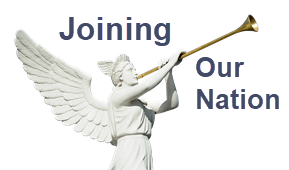Twelve-Stepping With Al-Anon
I love the Al-Anon phrase “Obedience to the Unenforceable.” Its significance stretches far beyond addiction, to offer hope—broadly—for renewing American democracy. It also relates to phrases “rule of law” and “consent of the governed.”
Two decades ago, I began attending Al-Anon meetings—the self-help group affiliated with Alcoholics Anonymous (AA). Prior to its founding, family members who were impacted by a spouse’s addiction, attended AA meetings alongside the alcoholic, who is also known as the spouse’s “qualifier,” for inclusion in the program. Later, spouses seized initiative and created Al-Anon as an entity, separate from but supportive of AA. It has grown into a worldwide, anonymous fellowship with 24,000 affiliated groups, hosting meetings in 130 countries. Alateen, a related support fellowship, helps adolescents from families with addictions. I’m an Al-Anon Member Involved in Alateen Service (certified AMIAS).
My now-deceased marriage partner—and “dry drunk” qualifier—was someone who didn’t abuse substances per se, but sometimes “acted out,” in the manner of an alcoholic. Several members of her family of origin bore alcohol and other substance addictions. Within our nuclear family, whenever intoxicated behavior appeared, Al-Anon offered family support without advocating family breakup.
In AA and Al-Anon, each partner bears accountability for improving family outcomes. Step One sets the tone for the spouse as well as the alcoholic: “We admitted we were powerless over alcohol—that our lives had become unmanageable.”
How It Works
As with AA, Al-Anon relies upon steps, traditions, and concepts of service. To illustrate, Al-Anon’s first tradition supports the common welfare. That is, personal progress for the greatest number is achieved through unity of purpose. Thus, the common welfare should be placed above mere pursuit of the self-interest of any individual. Other Al-Anon traditions emphasize the crucial importance of anonymity, that the program’s primary aim is spiritual, and that Al-Anon groups ought never be organized; that is, its leaders—who are merely trusted servants—ought never to govern.
American Democracy—What it Means
Perhaps you’ve seen signs such as “Please keep this door closed for your safety.” Or how about this one: “Please wear a Covid-19 mask for your safety.”
Instead, how about these alternatives? What differences might they communicate to you?
“Please keep this door closed for the safety of EVERYONE.”
Or: “Please wear a Covid-19 mask for the safety of EVERYONE.”
In each, the second choice emphasizes cooperation—by the individual—in support of the common good. In both, communitarian values are placed ahead of libertarian values without devaluing either request. Note also, communitarianism embodies the Al-Anon-related concept of obedience to the unenforceable, in support of the common good.
Of course, in most cultural situations, compliance is a voluntary, willful act, beyond being enforceable. Indeed, most rules, laws, and social conventions are held in place—not by any enforceable authority, but—by social custom and by respect for “others.”
This may be the critical distinction between the pursuit of “unvarnished” self-interest, and the pursuit of “self-interest, rightly understood.” It is a willingness to place “the good of the whole” ahead of “the pursuit of ‘unvarnished’ self-interest.”
This distinction becomes particularly crucial I believe, if American democracy is to survive, and to thrive.
~ Jim Sawyer

